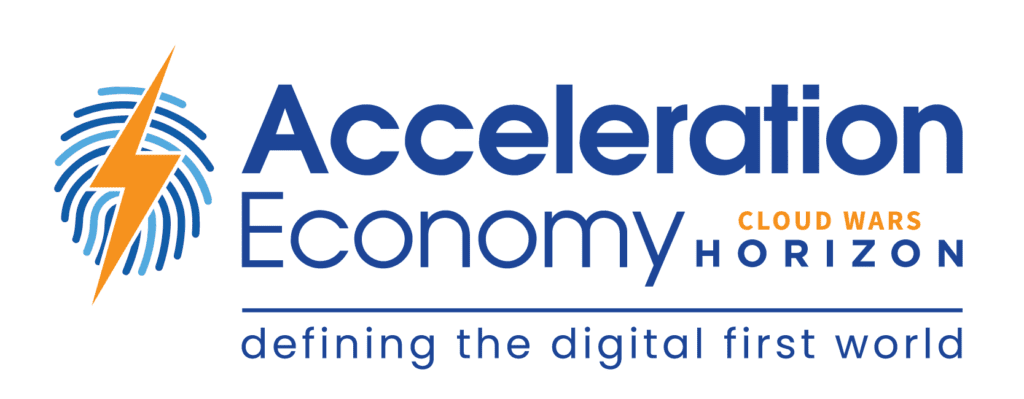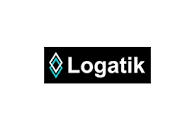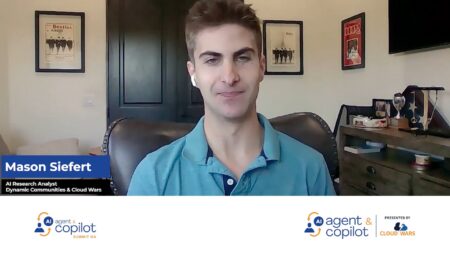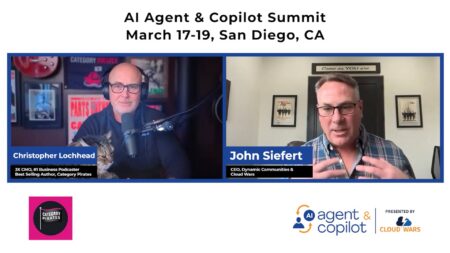Who They Are
The companies using process mining and execution management software tend to be global industrial giants: J&J, GE Healthcare, Siemens, Vodafone, ABB. As we’ve previously noted, those companies are given to tying tens of millions, hundreds of millions, even billions of savings to these software platforms.
So it was a new twist to learn of a young German startup named Logatik GmbH that’s taking process mining to a different class of company: those with $100 million to $1 billion in revenue — which are referred to as “SMEs” in Germany. Logatik consults with these companies to implement and deliver maximum results with process mining technology.
Groth first learned about process mining in college (Groth attended FAU Nuremberg Erlangen), through the Academic Alliance training program developed by process mining leader Celonis. He also put that learning into practice in an internship and during a stint with Deloitte. Along the way, he worked on a client project that yielded a 30% improvement in a client’s process; all of these factors opened his eyes to the potential of working in process mining.
The lightbulb really went off when he attended a networking event for small to medium businesses and found almost no awareness of process mining or its benefits. Since these types of companies employ somewhere around 60% of Germany’s population, he figured there was a sizable untapped opportunity.
“Adoption is — I wouldn’t say zero, but very close,” Groth says. “We aim to help them become more efficient, more lean, and help them adopt the tech more easily.”
Logatik is proving that process mining and execution management isn’t the exclusive province of giant companies. “Process mining can be applied everywhere by every kind of company, as long as they have processes and data,” says Jerome Geyer-Klingeberg, global head of the Celonis Academic Alliance, which partners with universities to train college students on process mining; one of its core goals is to develop a pipeline of trained professionals who can address an ongoing talent shortage.
Logatik started in early 2021, and the founders have bootstrapped the company. In early 2022, the company became a certified partner in the Celonis Ecosystem.
What They Do
The company launched with a focus on mid-market companies, and initially placed heavy emphasis on the underlying technology. A lack of recognition of the technology initially made for a tough sell. Then, Groth explained, the focus shifted to a business focus and how the technology could streamline processes.
“Having this kind of change in mindset to really focus on business problems was a crucial step for us,” he said, but the focus on delivering greater efficiency for mid-size companies has remained the same. “That was always the main mission but how we do it, how we present ourselves, changed over time,” Groth said.
The company has a three-part methodology for its typical client engagements.
It starts with a proof of value or feasibility study to give the client comfort they would be moving forward with minimal risk and without consuming a vast amount of their own resources. A timeline including the cost and value of implementation is created so the prospective client can make an informed decision.

Logatik Co-founder and CEO Patrick Groth on mid-market companies’ awareness of process mining: “Adoption is — I wouldn’t say zero — but very close. We aim to help them become more efficient, more lean, and help them adopt the tech more easily.”
Next is the implementation phase, which includes recommendations for optimizing the process; Logatik works closely with the client to deploy the software and impart skills needed to operate on their own so the client can be self-sufficient.
The final element is managing the process on an end-to-end basis through to completion; from data extraction to successful execution and tracking the effectiveness of results derived from the measures that have been implemented.
How Logatik positions its offerings:
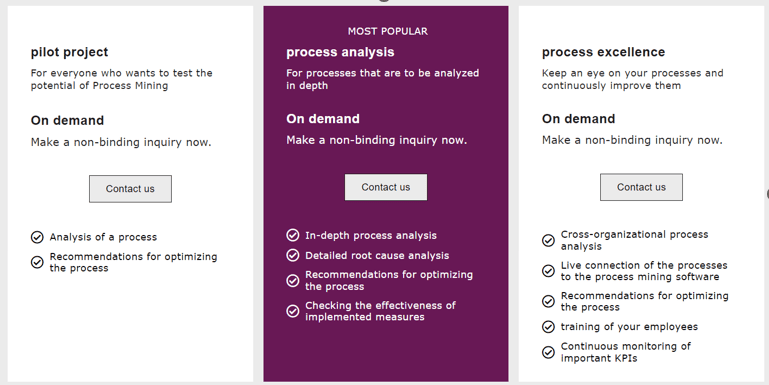
Who They’ve Impacted
The company’s current client base includes a number of manufacturing and medical clients, who tend to be risk averse and need to develop a high level of trust before making a leap into new technology.
“We really need to explain how we will deliver value. They don’t have huge budgets like big corporations, so it’s about making it easy for them and giving them an easy entry point so they can see the benefits of the technology,” Groth says.
For example, Logatik is working with a chemical manufacturer with 130+ million euros in revenue. The company has historically grown its production plant over more than 100 years and therefore has a lack of transparency over production and internal material flow. It has 34 million euros of capital tied up in unfinished goods and raw materials. Working with Logatik, the company has developed a data-based optimization of processes through Celonis’ execution management system and gained full transparency into throughput times as well as productivity within the production plant. The payoff: it has identified over 1 million euros in excess inventory.
More on Celonis’ Academic Alliance
As noted above, Groth participated in the Celonis Academic Alliance, which has trained almost 160,000 students over the past five years. Among the participating universities, Celonis training is offered in multiple academic disciplines: 70% are business-oriented programs, 20% are computer science and tech, and 10% are in MBA settings.

The alliance focuses on building a talent pipeline for companies in process mining, said Geyer-Klingeberg. “That’s the mission of the academic alliance —close the gap that exists due to today’s talent shortage.”
The program is geared to help prepare students for everything from technical roles — such as process mining data engineering — to business roles such as business analyst or process mining consultant. “With process mining, there’s an intersection between business, IT, and data,” Geyer-Klingeberg says. “It’s super important that kids have skills in those areas.”
Logatik’s Future and Closing Thoughts
Logatik is clearly in the earliest stages of its development, but the company has already shown a mature willingness and ability to pivot as it gains a deeper understanding of customers’ needs and comfort levels when it comes to technology that is entirely new to them. The customer example it’s ability to cite is a good indicator of its ability to help its clientele identify measurable value and cost savings. Agility should serve the company well as the market adapts, and as it strives to carve out a solid niche in an area where process mining and execution management have not yet made major inroads.
For more exclusive coverage of innovative cloud companies, check out Cloud Wars Horizon here:



